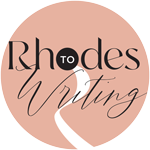By: Raymond Williams
Completing the final page of a project is a milestone that every writer takes pride in. It shows that all the hard work has paid off and allows for a moment of relaxation—until you have to edit your work. When this time comes, a mix of joy, frustration, and relief can fill a writer’s mind. According to communications firm Fuel Lines, it is customary for writers to spend more than half their time editing.
Every writer has their own unique editing process. Some edit their writing after finishing a paragraph or chapter, while others wait until it’s completely finished. Regardless of the routine, editing is essential to help you become better at your craft.
Here are four must-know editing tips you can use for your writing process:
Read your work out loud.
The words you write might make sense in your head, but reviewing what you’ve written out loud is always a great practice. By doing this, you’ll be able to edit or delete grammatical errors and clarify certain language and sentences so your text reads smoothly.
Don’t edit as you write.
Many writers find it challenging to resist the urge to edit their writing as they go. However, constantly editing while writing can be distracting and hinder progress. A helpful approach is to write everything down first, take a break, and then come back to review and make necessary edits. This method allows for more focused and effective editing without interrupting the flow of creating your story.
Remove unnecessary words or sentences.
An internal struggle writers experience is worrying if their work is good enough. For some writers, this mindset leads to using overly complicated words or sentences to make their writing sound “profound” or “intellectual” to potential readers. It is important to be as clear and concise as possible. Removing complex words and sentences can improve your writing and make it more legible. Sometimes, simple is better.
Let others read your work.
Having other writers read your work has many benefits, although this approach can ignite feelings such as excitement, fear, or nervousness. But, no matter how you feel, allowing others to read your work is essential to help you improve your skills. Receiving feedback from your editor, family, friends, mentors, or acquaintances will help keep you on track and open your mind to new ideas that can be incorporated into your story.

